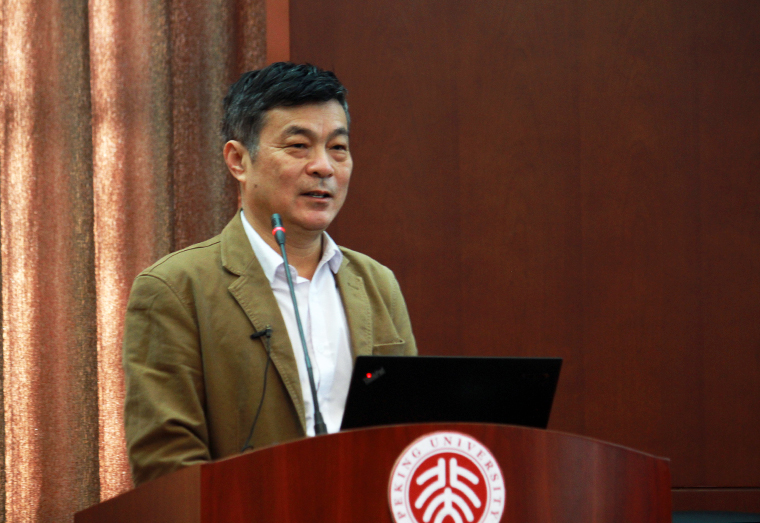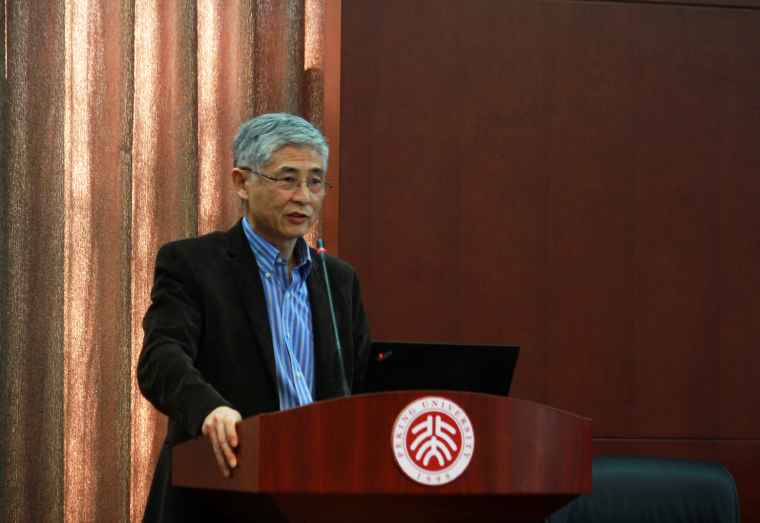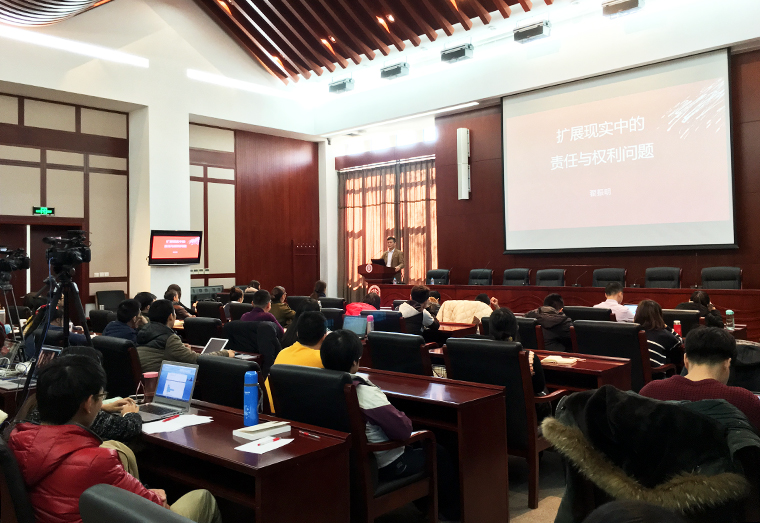



Professor ZHAI Zhenming of Sun Yet-sen Univerity gave a lecture on “Expanded Reality and Its Potential Threat to Humanity,” chaired by Professor NI Peimin, Executive Vice Director of IAHS, in Feb. 24, 2017, at 3:00pm, in the room 108, building No.1, Lee Shau-kee Humanities of Peking University.
Zhai is Professor of Philosophy, and also the founder and Director of the University’s “Human Machine Interfacing Lab.” He began the lecture by describing the experiencing process of the TelePorsation project in the lab, leading the audience to visualize how Virtual Reality and Internet of Things combined will form Expanded Reality where geographical obstacles for interpersonal communication and interaction will be overcome while all production processes will be carried out from within the virtual world through master/slave robotic teleoperation. The lab is a prototype of such a virtual world called “Expanded Reality.”
According to Zhai, there are two ways to structure the ER system. The system architect might place a controlling power over and above the whole system and let that power manipulate human avatars as means for controlling IoT, or, alternatively, he can arrange all human avatars as interacting centers of power that control devices in IoT. Ethically, these two alternative frameworks represent opposing valuational presuppositions, and we have to theoretically demonstrate why the second choice is legitimate while the first illegitimate and thus should be avoided. Specifically, the prevalent idea that neural-direct connections should replace the VR headset is the most dangerous one, as long as we do not know in what conditions human consciousness will be erased altogether.
In addition to traditional moral issues of what one ought to do in relation to other fellow beings in a community, virtual world ethics has also to deal with regulative principles of world-building on the player’s side, and normative principles of creation-enabling capacities on the platform provider’s side. These types of issues have never been systematically discussed before, but are crucial for constructing an ethically acceptable artificial virtual world, Zhai claimed.
The lecture came to a conclusion after Professor Zhai answered some questions raised by the audience.

Copyright@2014Institute for Advanced Humanistic Studies,PKU 京ICP备案1253235 Address: 4 Bldg,Lee Shau-kee Humanities,PKU,5 Yiheyuan Rd.,Haidian District,Beijing.